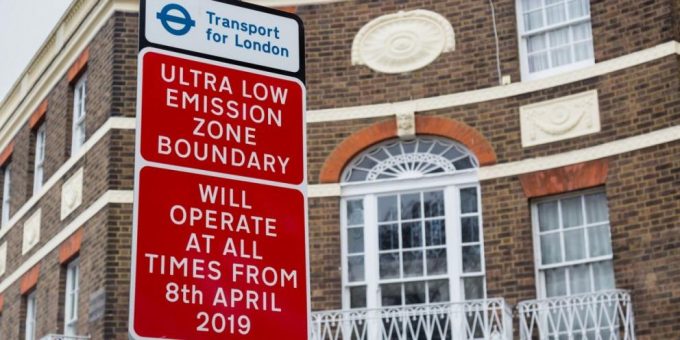Top 10 carriers divide over new fuels, orderbooks show
All the top-10 largest box lines appear to be moving away from conventional fuels in ...

Logistics operators remain concerned at the lack of financial support for Central London’s ultra-low emission zone (Ulez), which came into force today.
Mayor Sadiq Khan described it as a “landmark day” for the city as the Ulez became the first to run 24 hours a day, seven days a week.
Head of urban policy at the FTA Natalie Chapman said businesses needed more support to cope with the “financial burden” Ulez imposes.
“FTA recognises and supports the legal obligation to improve air quality ...
MSC Elsa 3 sinking – now the 'blame game' begins
After DSV 'cuts the cake' on Schenker acquisition, time for redundancies?
Bad news for shippers as wave of transpacific rate increases continues
Houthis claim Red Sea safe for box ships not calling at port of Haifa
Shippers hold their breath as Trump appeals court ruling that tariffs are illegal
No deals with carriers, say Houthis – Red Sea safe for non Israel-affiliated ships
Schenker's Shirley Sharma Paterson moves to K+N as global head of sales

Comment on this article